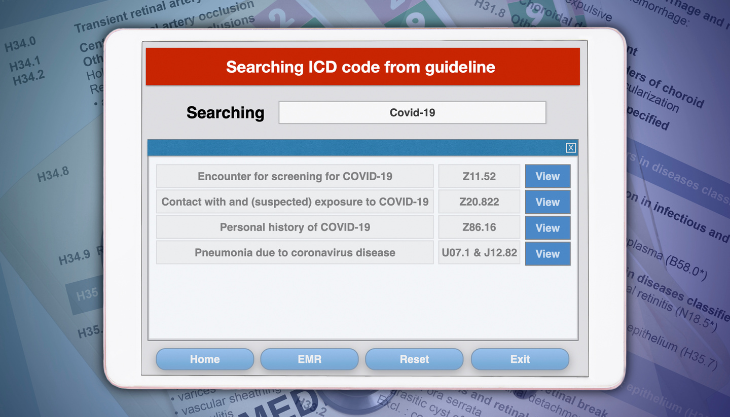Everything You Need to Know About ICD-11
Posted by Paolo Gabriel Demillo
Regulations EHR Medical Billing
Change seems to be the overarching theme across the entire healthcare sector. And with the release of the 11th edition of the International Classification of Diseases (ICD), which took effect on January 1, 2022, U.S. healthcare organizations should expect even more changes in their medical billing and coding workflows in the coming months.
With so much going on in the healthcare industry today, it’s tempting to set the thought of ICD-11 aside, especially considering its full mandatory implementation isn’t set in stone. However, this could be the perfect time to learn about ICD-11 before its inevitable full-scale adoption.
As the first update developed and published in two decades, the implementation of ICD-11 could pose a serious challenge for providers and medical billers. So it’s wise to get acquainted with it early.
Here’s everything you need to know about ICD-11 and how it affects your practice:
What is ICD-11?

Created by the World Health Organization (WHO), ICD is the global standard for categorizing physical and mental illnesses. Here in the U.S., healthcare organizations use ICD codes for billing and reimbursements, resource allocation, and other healthcare initiatives.
Currently, hospitals and independent medical practices across the country still use ICD-10. However, since the U.S. is a WHO member state, all healthcare-related financial transactions in the country are bound to transition to ICD-11 soon.
Read More: What is ICD-10 & Why Are ICD-10 Codes So Important For Healthcare
The updates in ICD-11 are meant to address the gaps in ICD-10 and incorporate the latest discoveries and breakthroughs in the medical field. The revisions streamline the categorization and coding structure and improve international applicability. ICD-11 codes are also software agnostic to make them more digital-ready and user-friendly.
What is the Difference Between ICD-10 and ICD-11?

While far from a complete departure from ICD-10, there are still plenty of significant changes in ICD-11 to take note of:
- ICD-11 contains 55,000 codes compared to 14,400 in ICD-10
- Expect significant changes in the following areas:
- Cardiology
- Allergy and immunology
- Infectious diseases
- Cancer
- Dementia
- Diabetes
- Code structures have been simplified
- Disease classification updates (e.g., cerebrovascular diseases are now classified under nervous system-related illness rather than circulatory system)
- Six new chapters were added, for a total of 27 chapters:
- Traditional medicine
- Conditions related to sexual health
- Diseases of the blood and blood-forming organs
- Disorders of the immune system
- Sleep-wake disorders
- Extension codes (e.g., temporality, severity, dimensions of injury, and external causes)
- “Gaming disorder” is now added to the addictive disorders section
What ICD-11 Implementation Means For Your Practice

The adoption of ICD-11 is seen as yet another disruption to the healthcare industry status quo. You may have to revisit your medical billing and coding workflows to conform to the new reporting standard.
While this may seem overwhelming, you don’t have to do it alone. Aside from familiarizing the new ICD codes and chapters, there are other ways to prepare for ICD-11’s impending implementation.
For one, you can upgrade your EHR software to a more comprehensive platform with an integrated revenue cycle management (RCM) solution to save money on third-party systems. Meditab’s Intelligent Medical Software (IMS) is an all-in-one EHR, practice management, and medical billing solution equipped with modern billing tools to address all your billing needs. As a trusted company with over two decades of experience, Meditab is known for innovations that adapt to the needs of the time.
Another solution worth considering is bringing a remote team of billing experts on board. Not only will it free you and your staff from the burden of learning every little detail about ICD-11, but it can also ensure an unimpeded cash flow for your practice amidst the transition. Remote staffing also saves time and money on training and overhead costs compared to hiring an on-site employee.
Read More: Remote Healthcare Staffing: Saving Time, Money, & Your Practice
With Meditab’s partnership with DrCatalyst, a remote staffing service provider, hiring a remote expert is easier than ever. Whether you need someone to take care of front office admin work or an entire team of billing experts to ensure you get paid on time and in the right amount, Meditab and DrCatalyst can pair your practice with the right team.
It remains unclear when exactly the full adoption of ICD-11 will happen. But considering the extent of the changes it brings, it’s better to plan for it as early as possible. With Meditab’s help, you won’t encounter any hiccups when the mandated implementation finally comes.
Share this post: on Twitter on Facebook on Google+


